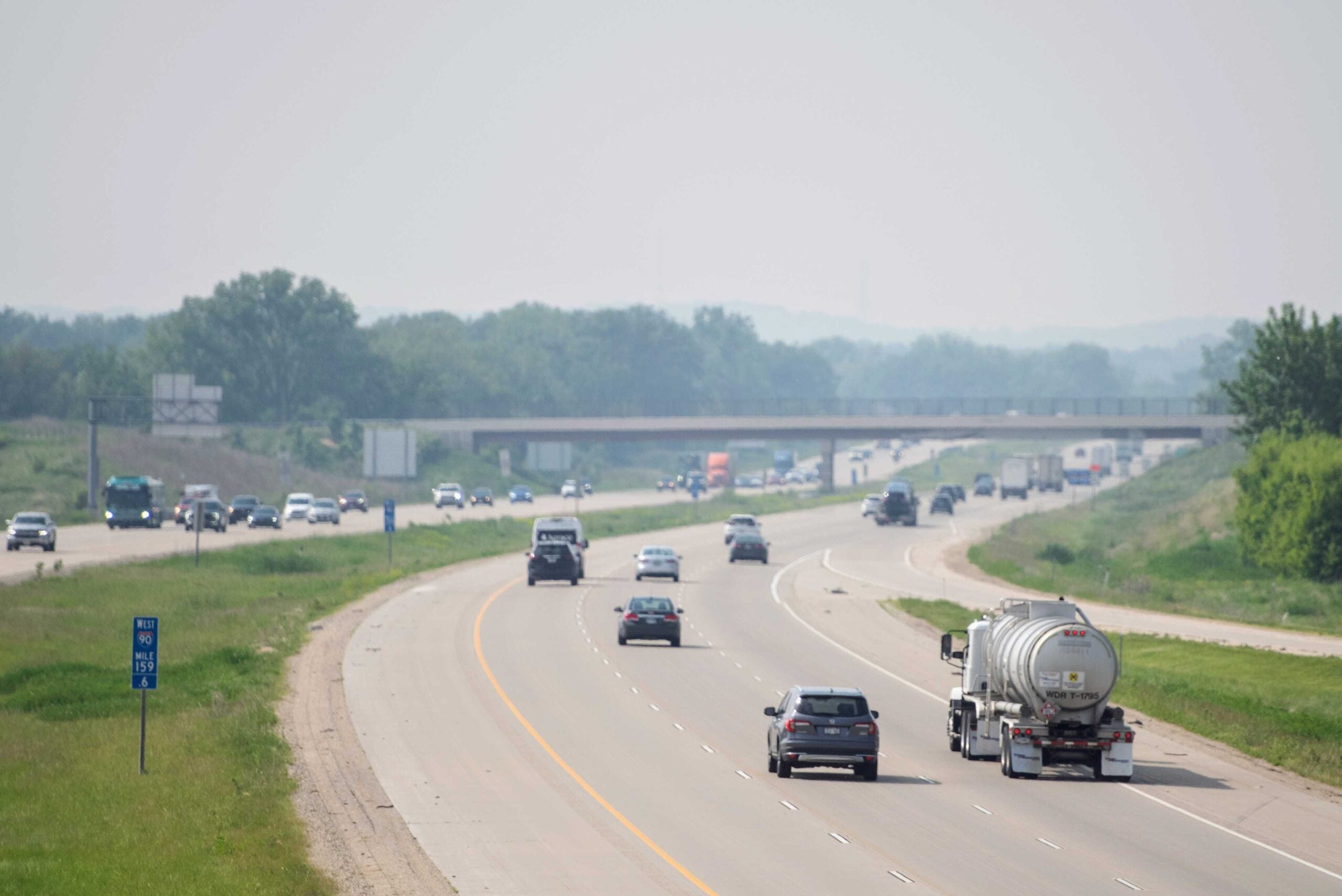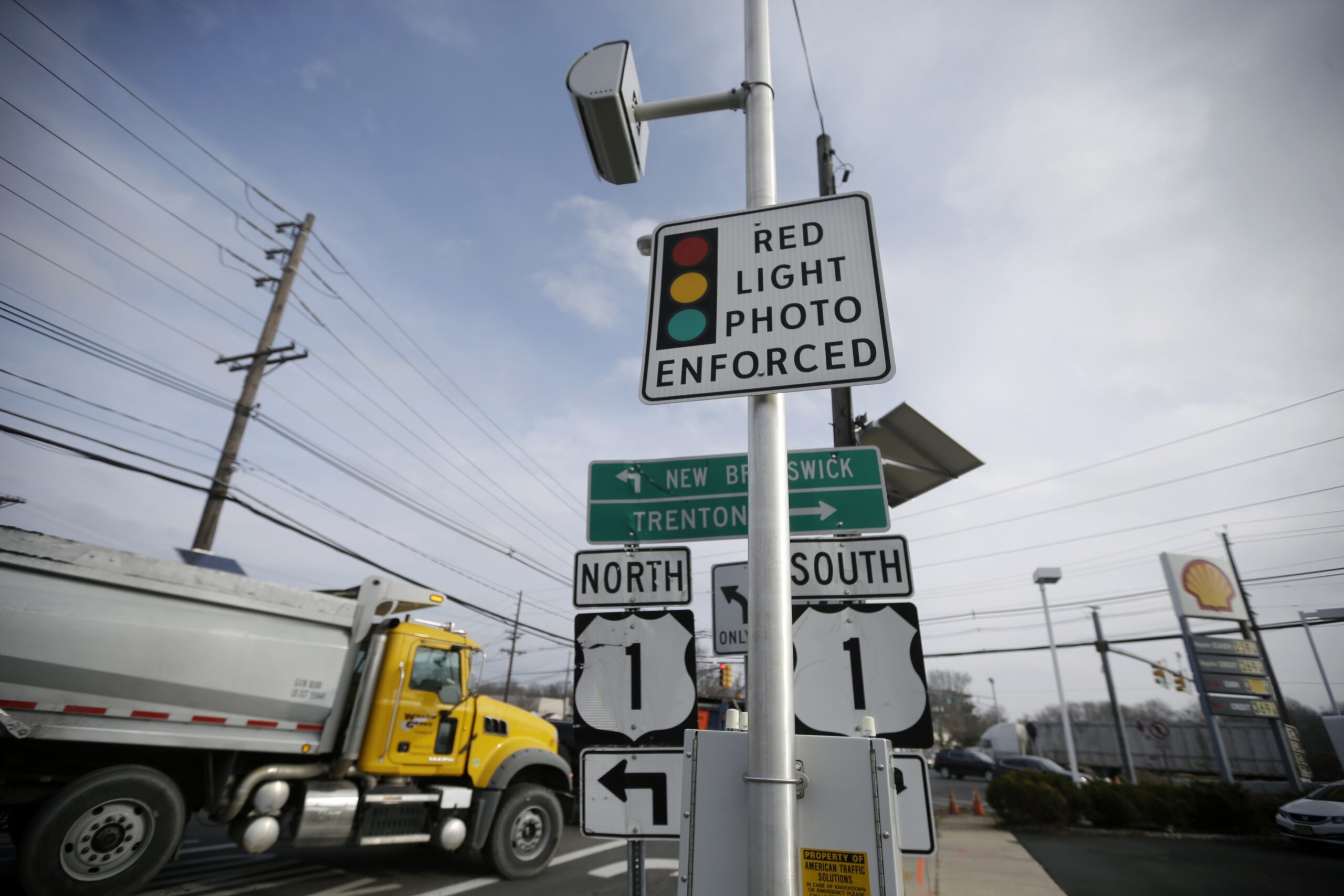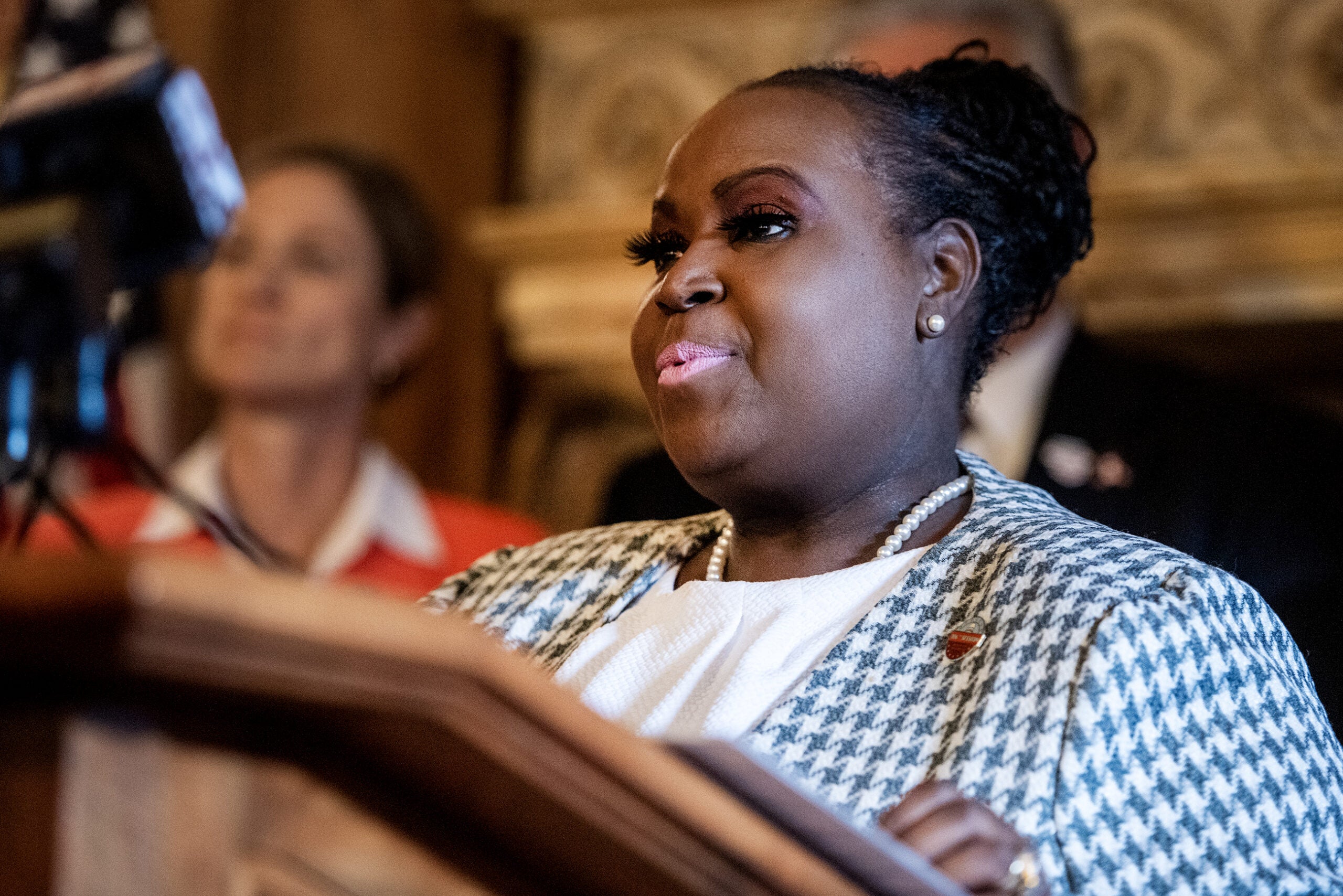Democratic state lawmakers announced a package of bills Wednesday that would change requirements for how law enforcement officers are trained to use force in Wisconsin.
One of the proposals would require every law enforcement agency in the state to write a use-of-force policy and make it publicly available.
Rep. Evan Goyke, D-Milwaukee, who represents Milwaukee’s Sherman Park neighborhood, said making those policies public would provide assurance to community. Last year, Sherman Park was rattled by public unrest after the fatal shooting of Syville Smith by a Milwaukee police officer.
News with a little more humanity
WPR’s “Wisconsin Today” newsletter keeps you connected to the state you love without feeling overwhelmed. No paywall. No agenda. No corporate filter.
“Some of the emotion that we felt in Milwaukee last August was not knowing,” Goyke said. “If the community has answers and a policy that’s in black and white in state law, there’s a lot more clarity and that solves to reduce a lot of anxiety.”
Another proposal in the package would require every law enforcement officer in Wisconsin to do at least eight hours of training per year on use-of-force techniques. That training would include so-called “de-escalation” strategies, which are used to move interactions away from violence.
The Rev. Alex Gee, founder of the Nehemiah Center for Urban Leadership Development in Madison, said that would promote safety of citizens and officers.
“What I appreciate about this legislation is that it doesn’t appear, in my opinion, to be one-sided. It really wants to make sure that all lives are enhanced and that everyone can come home,” Gee said.
The legislation, which has been spearheaded by Rep. Chris Taylor, D-Madison, would also require law enforcement agencies’ use-of-force policies to include certain principles, including language specifying use of deadly force “is to be used only as a last resort.”
“These are common-sense reforms that communities and law enforcement can agree upon to enhance the safety of everyone in the community,” Taylor said.
The bills are being circulated for co-sponsorship in the state Capitol. They have yet to be assigned to a committee for a public hearing.
Wisconsin Public Radio, © Copyright 2025, Board of Regents of the University of Wisconsin System and Wisconsin Educational Communications Board.







